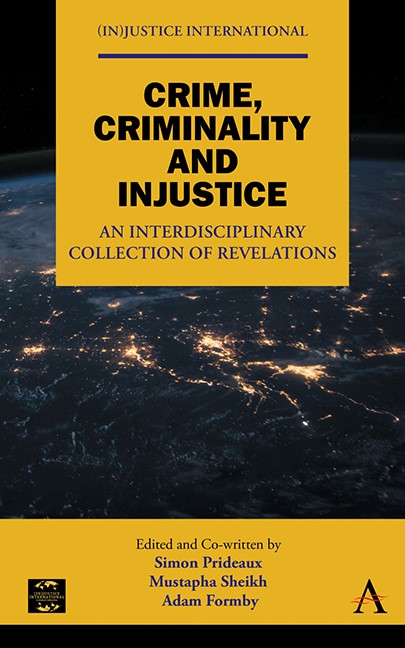Book contents
- Frontmatter
- Dedication
- Contents
- Acknowledgements
- List of Editors and Contributors
- Editor’s Introduction to the Book
- Part One Incarceration, Cultural Destruction and Ecocide: The Alienation of Ethnic Minorities, Nature and Indigenous Peoples
- Part Two The Impoverishment, Exclusion and Maltreatment of the Working Poor
- Part Three Disability, Poverty and Neglect
- Part Four Youth, Gender, Migration and Human Trafficking
- Concluding Remarks
- Index
Introduction To Part One
Published online by Cambridge University Press: 14 November 2023
- Frontmatter
- Dedication
- Contents
- Acknowledgements
- List of Editors and Contributors
- Editor’s Introduction to the Book
- Part One Incarceration, Cultural Destruction and Ecocide: The Alienation of Ethnic Minorities, Nature and Indigenous Peoples
- Part Two The Impoverishment, Exclusion and Maltreatment of the Working Poor
- Part Three Disability, Poverty and Neglect
- Part Four Youth, Gender, Migration and Human Trafficking
- Concluding Remarks
- Index
Summary
Contextual Background
Indigenous peoples live on all continents ranging from the Arctic to the Pacific via Asia, Africa and the Americas (OHCHR 2020). According to the United Nations (2021), Indigenous peoples are the inheritors and practitioners of unique cultures and ways of relating to people and the environment. They have retained social, cultural, economic and political characteristics that are uniquely different from those of the dominant society in which they now live. Yet, despite their cultural differences, Indigenous peoples from around the world share common problems and obstacles in the protection of their rights as distinct peoples. As a result, Indigenous peoples have sought recognition of their identities, way of life and their right to traditional lands, territories and natural resources for years.
Throughout history, the rights of Indigenous peoples have been violated. Today, they are arguably among the most disadvantaged and vulnerable groups of people in the world. In response, the international community is tentatively recognising that special measures are required to protect Indigenous rights and maintain distinct cultures and ways of life. By way of reinforcement, (In)Justice International is intent on revealing and disseminating the extent and manifestation of the traumatic obstacles that Indigenous people historically had, and still have, to endure and overcome. Such neoliberal-endorsed and inspired acts of travesty against Indigenous groups have emanated from illegal deforestation, land clearances, mining and the desecration of sacred sites (as in Australia, Papua New Guinea and Brazil), the confiscation of lands either by deception or force (in the United States and New Zealand) and the inculcation of ‘white’ norms and values of the dominant ‘social’ configurations of the ‘civilised’ Western (Minority) World (epitomised by the Residential Schools in Canada, 1880s–1996 and Missions in Australia 1820–1987).
Sadly, such practices still continue in a relatively unabated manner and, in the midst of all this violation, Indigenous women are particularly vulnerable. So too are Indigenous youth who are disproportionately impacted by a lack of access to education, employment opportunities, decision-making processes and, above all, access to justice.
- Type
- Chapter
- Information
- Crime, Criminality and InjusticeAn Interdisciplinary Collection of Revelations, pp. 3 - 8Publisher: Anthem PressPrint publication year: 2023

